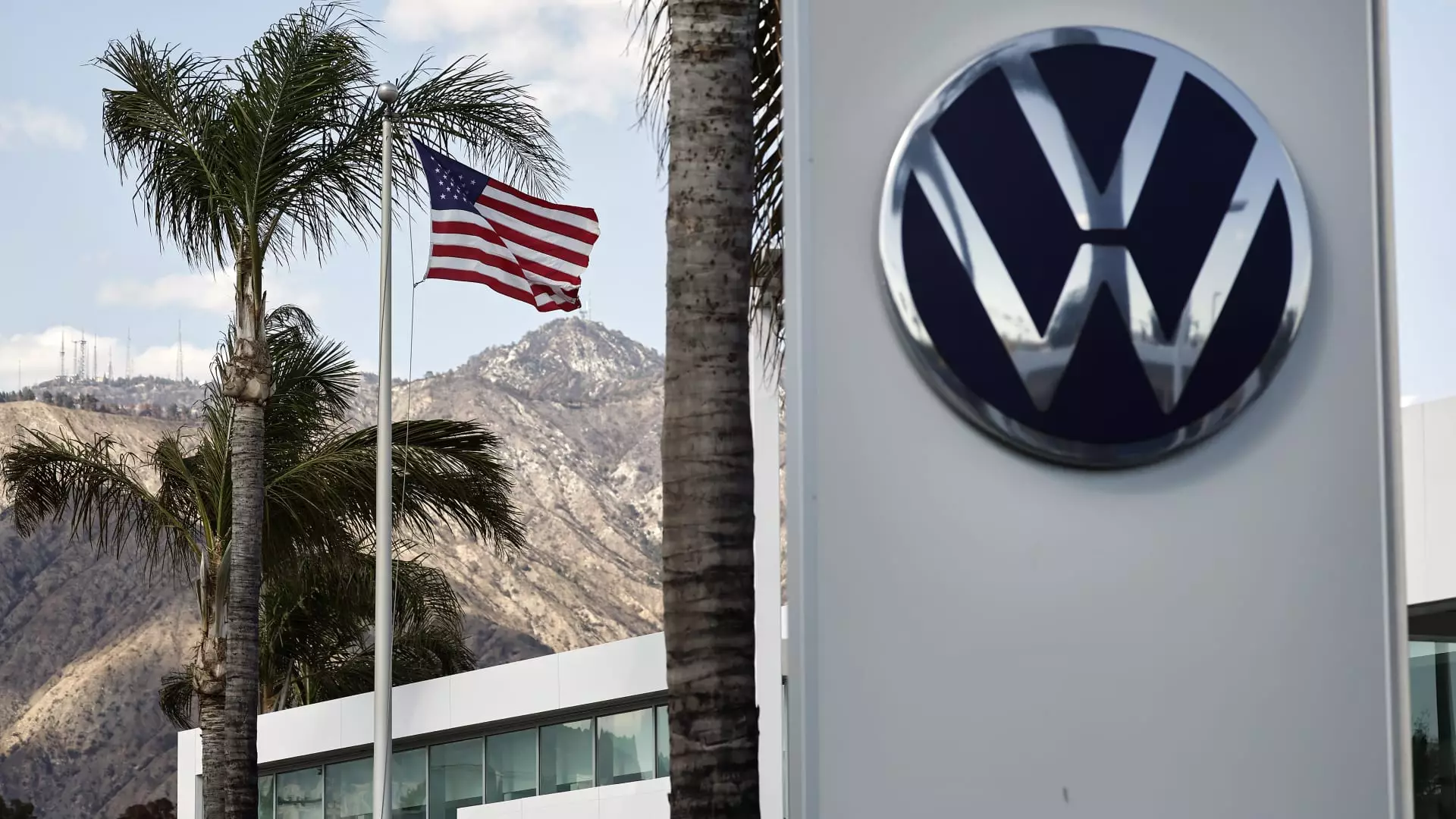Volkswagen (VW), the automotive behemoth, has recently become embroiled in a grim economic landscape that has significantly stymied its financial performance. Reporting an operating profit of just 2.9 billion euros (approximately $3.3 billion) for the first quarter of the year, the German manufacturer saw a staggering 37% decline compared to the previous year. This drop is emblematic of larger underlying issues plaguing the global automotive industry, largely exacerbated by U.S. trade policies which have fluctuated under the erratic leadership of former President Donald Trump. While VW’s sales revenue nudged up by 2.8% to 77.6 billion euros thanks to demand outside of China, the overall picture is overshadowed by mounting geopolitical strife and the persistent threat of tariffs.
The Uncertainty Caused by Evolving Tariff Policies
The complexity of trade tariffs is a weighty issue Volkswagen cannot ignore. The imposition of 25% tariffs on imported vehicles into the U.S. by the Trump administration has injected immense unpredictability into the market. As a company heavily reliant on a global supply chain, VW is particularly vulnerable to these back-and-forth tariff decisions. Recently, an executive order aimed at easing some tariffs offered little solace, as many burdensome duties remain intact. The automotive sector craves stability, yet it finds itself wrapped in a web of fluctuating trade conditions that complicate strategic planning and investment.
As CFO Arno Antlitz noted, the combination of political uncertainty and increasing trade restrictions presents daunting challenges that VW must carefully navigate. It’s a delicate balancing act when the constraints from such levies influence the cost of vehicle production, potentially deterring consumer demand in key markets. This reality hits harder when one considers that VW was already anticipating a mixed start to the fiscal year, a harbinger of the trials yet to come.
Contrasting Market Dynamics and Their Implications
Even as VW records a modest uptrend in sales—2.1 million vehicles sold, a slight uptick of 0.9% from the same period the prior year—this is negated by the sobering outlook for their profitability. First-quarter order intakes in Western Europe did indeed surge by 29%, reflecting a potential resilience in local demand. However, without careful cost management, these positive indicators may not be enough to counterbalance the profound impacts of their eroded global profit margins.
VW’s net cash flow also tells a concerning tale, plunging to -0.8 billion euros. This figure highlights the cash strain the company is experiencing, suggesting that while revenues superficially appear stable, the underlying cost structures may be unsustainable. The looming uncertainties regarding both political climates and stringent emissions regulations complicate these financial forecasts, leading VW to project outcomes at the lower end of their annual expectations.
The Market Reaction: A Reflection of Investor Sentiment
VW’s stock performance reflects this precarious situation; its shares dipped 0.7% amidst reported earnings that fell short of analysts’ forecasts. Investor sentiment is understandably shaken. The automotive industry is notorious for its tight profit margins, but these recent developments further shake confidence in VW’s ability to sustain profitability amid external pressure. The immediate future appears precarious, leaving stakeholders to question the company’s capacity to pivot in response to economic headwinds.
Unlike in past years where innovation and robust sales strategies could buoy the company, the present climate necessitates a more conservative stance. VW must strike a chord between competitive pricing and the need to invest in its product lineup, particularly as the market evolves toward sustainability. The triumphs of the automotive industry are often tied to their responsiveness to shifts in consumer preferences and regulatory landscapes; VW must do more than tread water if it hopes to regain its footing in this ever-volatile environment.
Volkswagen stands at a crossroads, grappling with the dual forces of political unpredictability and market volatility. Without significant adjustments, both operationally and strategically, it could find itself further adrift in a sea of competitive stagnation, unable to navigate the turbulent waters of the modern auto industry.

Leave a Reply